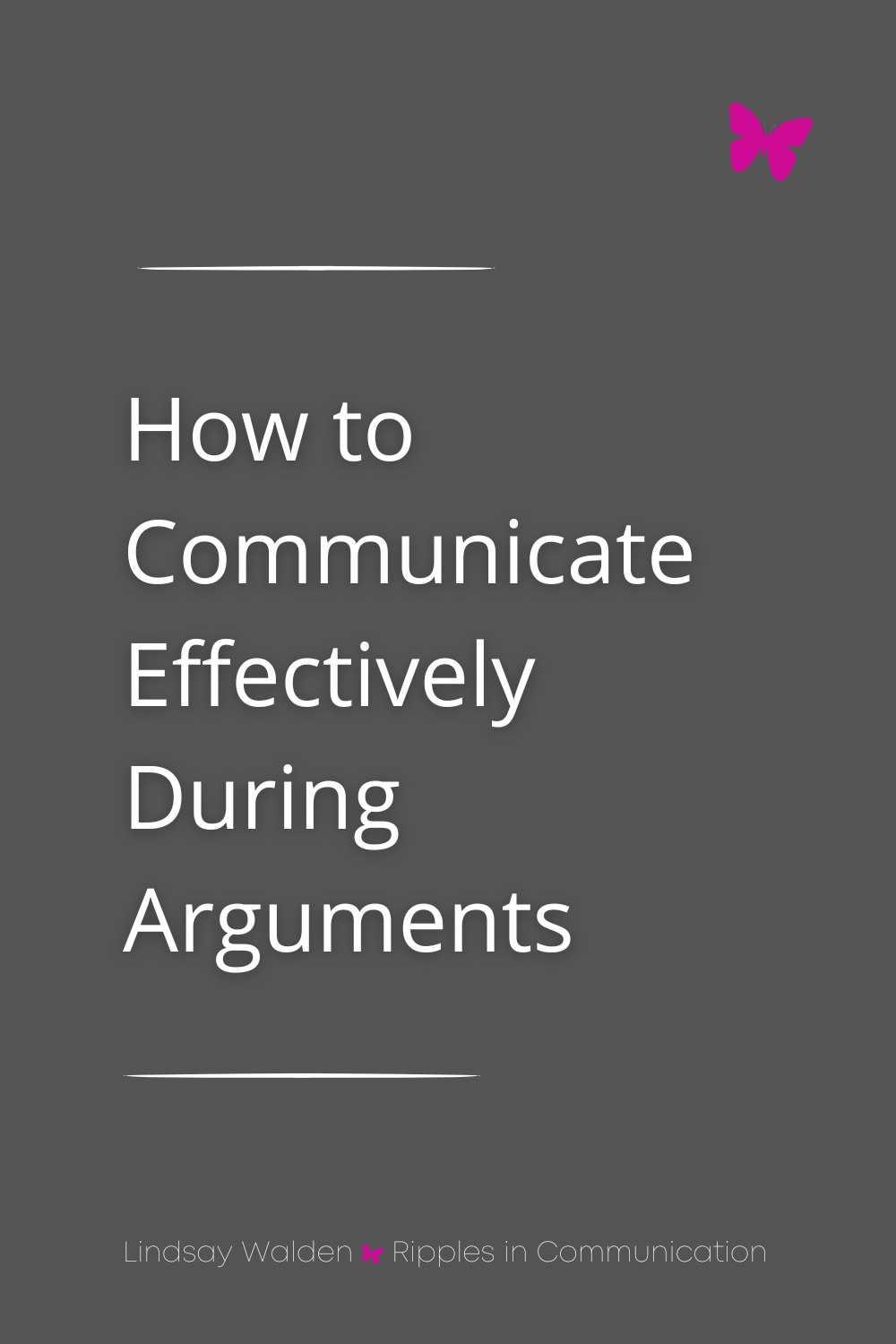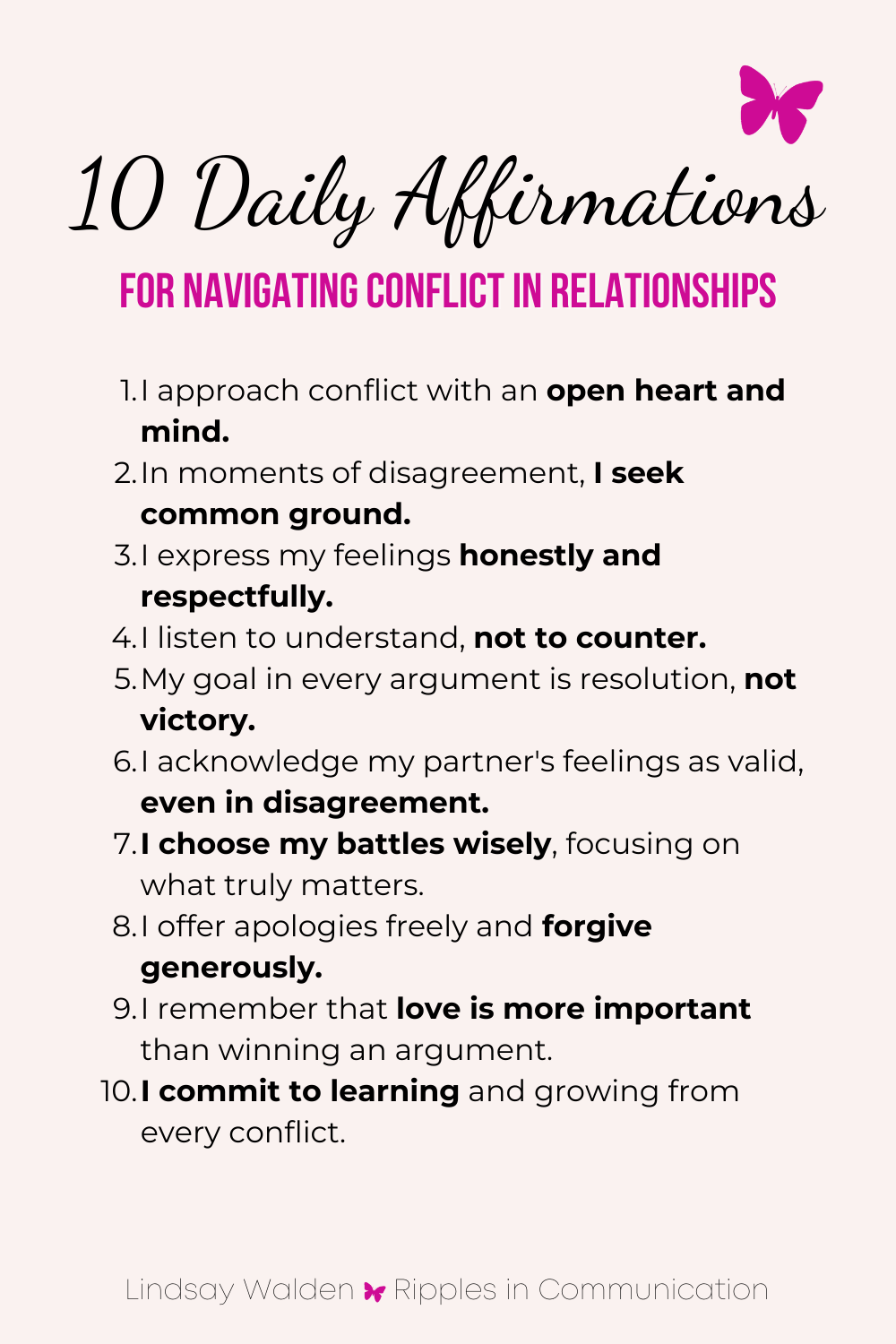How to Communicate Better During Arguments
Healing Words: Navigating Hurt in Arguments
Arguments in relationships often unfold under intense emotions, sometimes leading to expressions of hurtful words. The sting of these words can linger, impacting both emotional well-being and the foundation of trust that healthy relationships require. Recognizing the weight of words used in anger is crucial, not only for healing from hurt but also for advancing towards resolving conflicts effectively. This discussion aims to shed light on strategies for effective communication, understanding the influence of love languages, fighting languages, and apology languages, and fostering emotional intelligence and intimacy issues, all while ensuring emotional safety and building trust. By addressing these elements, couples can navigate through hurtful exchanges towards a path of relationship healing, clarity, and stronger, open conversations.
Key Takeaways:
Insight into how hurtful words affect relationships and the importance of addressing them for emotional well-being.
Introduction to love languages, fighting languages, and apology languages as tools for better understanding and healing.
Strategies for effective communication and building trust, ensuring a supportive environment for addressing intimacy issues and resolving conflicts.
Have you gotten my FREE Relationship Communication Guide yet? Start building an authentic, conscious, and thriving relationship with your partner TODAY. Say goodbye to misunderstandings, conflicts, and missed opportunities for a deeper connection. These are the same tips and practical advice I give to my clients every day. With this guide, you'll be equipped to navigate any communication challenge and build a strong and fulfilling bond with your partner. Click the button below to enter your email address and I will send the guide to your inbox right away!
Understanding the Impact
Hurtful words, in the heat of an argument, can leave a deep impact. They burrow into our emotional well-being, creating scars that may be invisible but are felt deeply. This effect is not limited to the moment of the conflict; it extends into the fabric of the relationship, undermining trust and fostering resentment. Tackling these issues head-on is essential. It's about building trust, understanding your partner, and fostering emotional safety. Only through open conversations and effective communication can healing from hurt begin. Addressing this head-on promotes a healthy relationship, ensures emotional safety, and lays the groundwork for a future where forgiveness in relationships is possible. Ignoring the problem can lead to a cycle of unresolved conflicts, but confronting it paves the way for relationship healing and building a foundation of empathy and emotional intelligence.
The Role of Memory and Accountability
In the aftermath of an argument, accountability can become clouded when one person does not remember saying hurtful things. This disconnect often stems from the heat of the moment, where anger and frustration take precedence over thoughtfulness and control. For the receiver, those words can leave a lasting scar, affecting trust and intimacy in the relationship. It is crucial, then, to address these incidents openly. Acknowledging that hurt was caused, irrespective of the memory of the event, is the first step towards healing. This process not only fosters emotional intelligence but also builds a foundation for resolving conflicts in a healthier manner. By doing so, couples can pave the way towards a relationship characterized by understanding, forgiveness, and emotional safety, gradually healing from the hurt and moving towards a more secure and healthy relationship.
Discovering Your Love Languages
I often stress the pivotal role understanding each other plays in healing and enhancing intimacy within relationships. Delving into the realm of love languages unveils a path to this understanding. It sheds light on how we express and yearn to receive affection, paving the way for deeper connections. Recognizing whether your partner cherishes words of affirmation, acts of service, receiving gifts, quality time, or physical touch can transform the way you interact. This knowledge, in essence, acts as a guide to tailor your approach to love, ensuring your efforts resonate deeply with your partner. It’s not just about loving; it’s about loving rightly and profoundly. Encouraging couples to explore and share their love languages sets the foundation for a bond characterized by empathy, effectiveness, and emotional intelligence. Harnessing this tool, love not only grows; it flourishes.
Learn the secrets to navigating arguments with grace and understanding. Discover how to communicate effectively, ensuring every discussion strengthens your relationship.
The Importance of Fighting Languages
Understanding fighting languages serves as a crucial tool in navigating the complex dynamics of couple’s communication, especially during conflicts. These languages allow us to frame our disagreements in ways that are less likely to leave scars, fostering constructive rather than destructive arguments. Imagine altering the very fabric of how we argue, replacing hurtful jabs with conscientious expressions of frustration and need. By acknowledging our partner's fighting language, we create an environment where emotional safety is prioritized and the focus shifts from winning the argument to resolving the underlying issues.
At their core, fighting languages guide us towards resolving conflicts by emphasizing empathy, emotional intelligence, and active listening. They teach us to recognize the impact of our words and encourage accountability for the things we say in anger. This approach not only aids in healing from hurt but also in building trust and understanding in the relationship. Embracing fighting languages means embarking on a journey towards healthier, more resilient bonds where each argument becomes an opportunity for growth rather than a battleground for grievances.
Apology Languages: The Key to Forgiveness
Discovering and understanding apology languages could be the key that unlocks the door to healing in our relationships. This concept teaches us that just as we express and receive love in different ways, we also express and seek forgiveness differently. It's quite enlightening to realize that a sincere apology for one person might not resonate with another due to these varied languages. By identifying our own and our partner's apology language, we can communicate remorse in a way that truly reaches the heart, fostering deeper forgiveness. Taking the time to learn this about each other signifies a commitment to resolving conflicts and building a future rich in understanding and empathy. Offering an apology that speaks directly to our partner's language can mend bridges faster than we imagined, and contributes significantly to creating a healthy, emotionally safe environment where both partners feel valued and understood. In essence, mastering apology languages is about nurturing respect, emotional intelligence, and love in our shared journeys.
Taking the Quizzes Together
I strongly recommend both partners take the love, fighting, and apology languages quizzes. Doing so will provide deeper insight into each other's communication styles, emotional needs, and methods for resolving conflicts. As a couple, discovering where your languages align and diverge can lay the groundwork for building trust, enhancing emotional intelligence, and fostering healthier interactions. These quizzes serve as tools for opening conversations, identifying specific areas needing attention, and developing actionable strategies for avoiding hurtful exchanges. Remember, understanding your partner through these lenses is a crucial step toward healing from hurt and nurturing a safe, emotionally supportive relationship.
Communicating Boundaries and Expectations
Opening up about our boundaries and what we expect from one another is essential. It can sometimes feel daunting, yet it's a critical step towards building trust and understanding in our relationships. For those moments when anger sparks and words fly carelessly, knowing where each other's limits lie can prevent deep scars. I emphasized, through the years, that effective communication isn't just about conveying our thoughts but also about listening and respecting our partner's emotional boundaries.
In every couple's journey, establishing clear expectations on how to manage conflict creates a foundation for healing from hurt and dealing with anger constructively. By discussing these matters openly, we not only safeguard the emotional safety of our bond but also enhance our intimacy and connection. It's about navigating through disputes with empathy and emotional intelligence, ensuring that even in heated moments, forgiveness in relationships remains within reach. How we communicate during these trials becomes a testament to the resilience and health of our relationship.
Step-by-Step Guide to Healing Conversations
Engaging in healing conversations necessitates a structured approach. Initially, ensure a calm and collected state for both parties. Rushed discussions, especially when emotions are still high, often lead to further misunderstandings. Once a serene environment is established, proceed with the following steps:
Initiate with openness: Start by expressing your intent to understand and resolve the hurt caused, rather than assigning blame. This sets a constructive tone.
Listen actively: Give your partner your undivided attention. This involves not just hearing their words, but also trying to comprehend the emotions behind them. It's crucial for making them feel seen and heard.
Validate feelings: Acknowledge the hurt experienced by both sides. Validation does not equate to agreement but shows empathy toward their feelings, which is pivotal for healing.
Express hurt constructively: When sharing your feelings, concentrate on your emotions rather than criticizing your partner’s actions. Use "I feel" statements to convey how their words affected you.
Discuss solutions and preventive strategies: Work together to find ways to prevent similar situations. This could involve establishing a safe word to use when discussions get too heated or agreeing to take a timeout when needed.
These steps pave the way for a future where both partners feel understood, respected, and loved, turning painful memories into stepping stones for a stronger bond.
Follow these five steps to use healing words after an argument, turning moments of conflict into opportunities for growth and deeper connection.
Practicing Empathy in Heated Moments
In the heat of a disagreement, empathy can be transformative. It involves putting ourselves in our partner's shoes, understanding their feelings and perspective, even if we don't agree. This understanding, in moments charged with emotion, has the power to diffuse anger and prevent the escalation that often leads to hurtful exchanges. By focusing on empathy, we cultivate emotional intelligence, which is foundational for healthy relationships. This skill enables us to navigate the complexities of couples communication with a greater sense of care and understanding.
However, this is easier said than done. Applying empathy requires us to pause, reflect on our partner's emotional state, and consider the impact of our words before we speak. Such mindfulness in the midst of conflict fosters emotional safety, making it less likely for either party to resort to damaging comments. Consequently, embracing empathy can significantly aid in resolving conflicts, healing from hurt, and ultimately, building trust.
Creating a Safe Space for Vulnerability
In the dance of emotional safety, a safe space for vulnerability stands as a cornerstone. It empowers both individuals in a relationship to bare their souls, free from the shackles of judgment. This sacred ground fosters emotional intelligence and trust, facilitating a deeper understanding of each other's fears and dreams. Through the lens of empathy, we begin to see the world from our partner's perspective, nurturing a compassionate bond.
Establishing this sanctuary is not a task for the faint-hearted. It requires courage, a commitment to effective communication, and an unwavering respect for boundaries. As we navigate through storms of anger and misunderstanding, this haven acts as a beacon, guiding us back to the shore of love and forgiveness. Here, intimacy flourishes, not just physically, but at the very core of our emotional beings. It's a place where we can confront our issues, deal with lingering hurt, and embark on the journey of healing together, under the banner of open conversations and healthy relationships.
Professional Help: When to Seek It
At times, relationship advice, intimate discourse, and personal efforts aren't enough to mend the tears caused by hurtful arguments. This insufficiency demands the intervention of professional couples therapy. Situations necessitating this step often share common characteristics. For instance, when hurtful exchanges have solidified into a destructive pattern, shaking the very foundation of trust and emotional safety within the relationship. It's vital to recognize when the tools at your disposal—like understanding your partner through love languages or attempting to foster healthy relationships through open conversations—hit their limits.
Moreover, if arguments teeter on the precipice of emotional or psychological harm, professionals adept in resolving conflicts and dealing with anger can offer much-needed relief. Their expertise in building trust and fostering forgiveness in relationships becomes crucial. Such scenarios underline the importance of seeking external help. They mark a critical junction where the collective wellness of the relationship surpasses what can be achieved alone. Acting promptly can prevent these conflicts from evolving into irreparable issues, thus safeguarding the future of understanding and forgiveness between partners.
Implementing Preventative Strategies
In our journey towards building a healthy relationship, understanding and preempting conflict is crucial. We have already explored how deep-seated issues can lead to hurtful exchanges during arguments. Resolving conflicts, however, doesn't just stop at addressing the aftermath. It involves implementing preventative strategies to reduce future occurrences.
Implementing regular check-ins with your partner plays a pivotal role in this process. These check-ins serve as a platform for open conversations where both of you can express concerns, feelings, and needs without waiting for issues to escalate. It's a proactive approach to couples communication, nurturing emotional safety and relationship healing.
Another effective strategy involves establishing a code word. This unique, pre-agreed signal can be used during heated moments as a way to pause the argument. It's a safeguard, ensuring that both parties have a chance to cool down before the situation spirals out of control. Using this strategy requires a high level of emotional intelligence and mutual respect; it's about recognizing when the anger levels are rising and choosing to step back, aiming for a healthy relationship.
By blending these approaches—regular emotional check-ins and a safety net during arguments—we lay the foundation for a relationship characterized by understanding, forgiveness, and resilience. These strategies not only help in circumventing hurtful outbursts but also foster an environment where emotional safety is paramount, paving the way for deeper intimacy and trust.
Towards a Future of Understanding and Forgiveness
The path to a healthy relationship, particularly when navigating the treacherous waters of hurtful arguments, demands patience, understanding, and concerted effort from both partners. We have embarked on a journey through this article that has illuminated the significance of effective communication, emotional intelligence, and the transformative power of understanding our own and our partner's love, fighting, and apology languages. These tools are not just conceptual frameworks but practical solutions for building trust, ensuring emotional safety, and ultimately, fostering a nurturing environment where intimacy flourishes despite the setbacks that may accompany conflicts.
Often, the root of misunderstanding and pain in arguments lies not in the content of the dispute but in the manner it is expressed and received. Discovering and embracing our fighting languages can be a revelation, providing a roadmap to resolve conflicts without causing lasting emotional harm. Similarly, apology languages unlock the door to forgiveness, enabling both partners to move past hurt and misunderstandings. It's a journey that requires us to look inward, to confront and moderate our own reactions for the sake of a stronger union.
Learning how couples therapy, relationship quizzes, and open conversations can contribute to a foundation of understanding and forgiveness offers hope. It shows us that no relationship is beyond repair, provided both individuals are willing to invest in healing and growth. In times of disagreement, empathy becomes our most powerful tool, reminding us to treat our partner's emotions with the same care and consideration we desire for our own. By embracing vulnerability, we create a safe space for both partners to express and resolve their deepest fears and insecurities, thereby reinforcing the bond between them.
As we look towards a future marked by understanding and forgiveness, let us remember that the strength of our relationships is reflected not in the absence of conflict, but in how we choose to address and learn from these challenges. It's a testament to the resilience of human connection and the enduring power of love.
Embrace the power of truly listening to understand, not just to reply. This is where healing conversations start, transforming conflicts into opportunities for growth.







